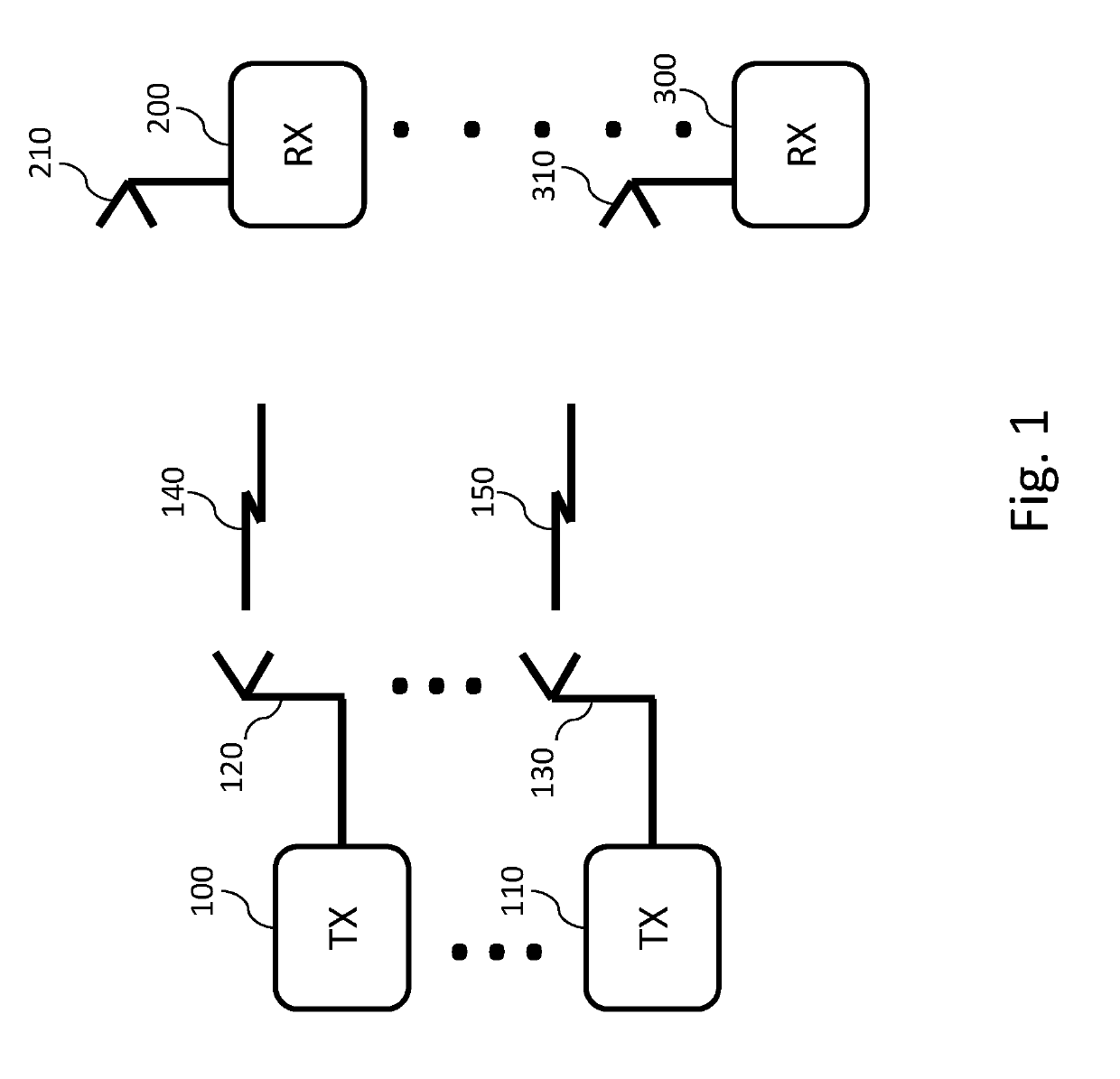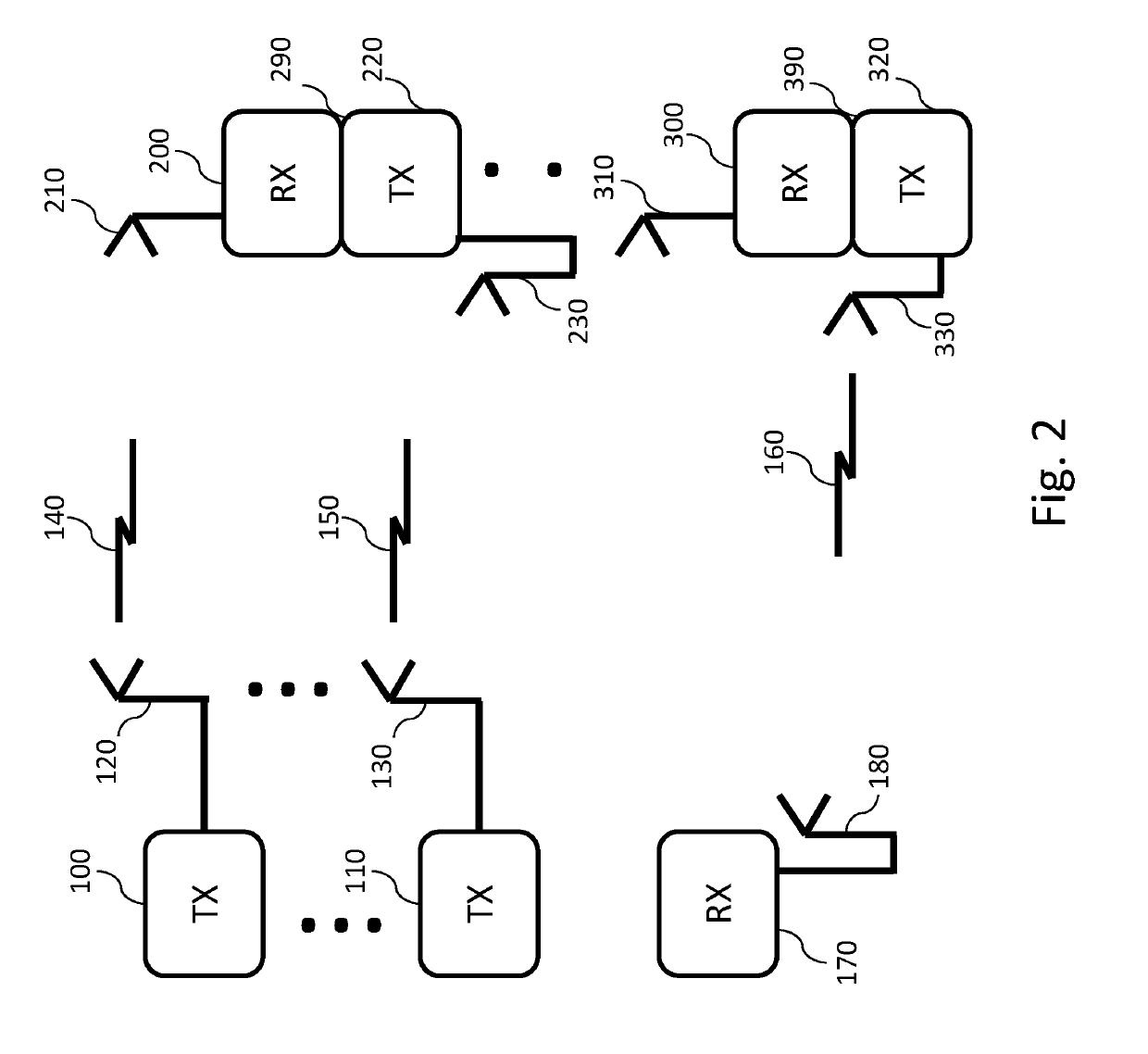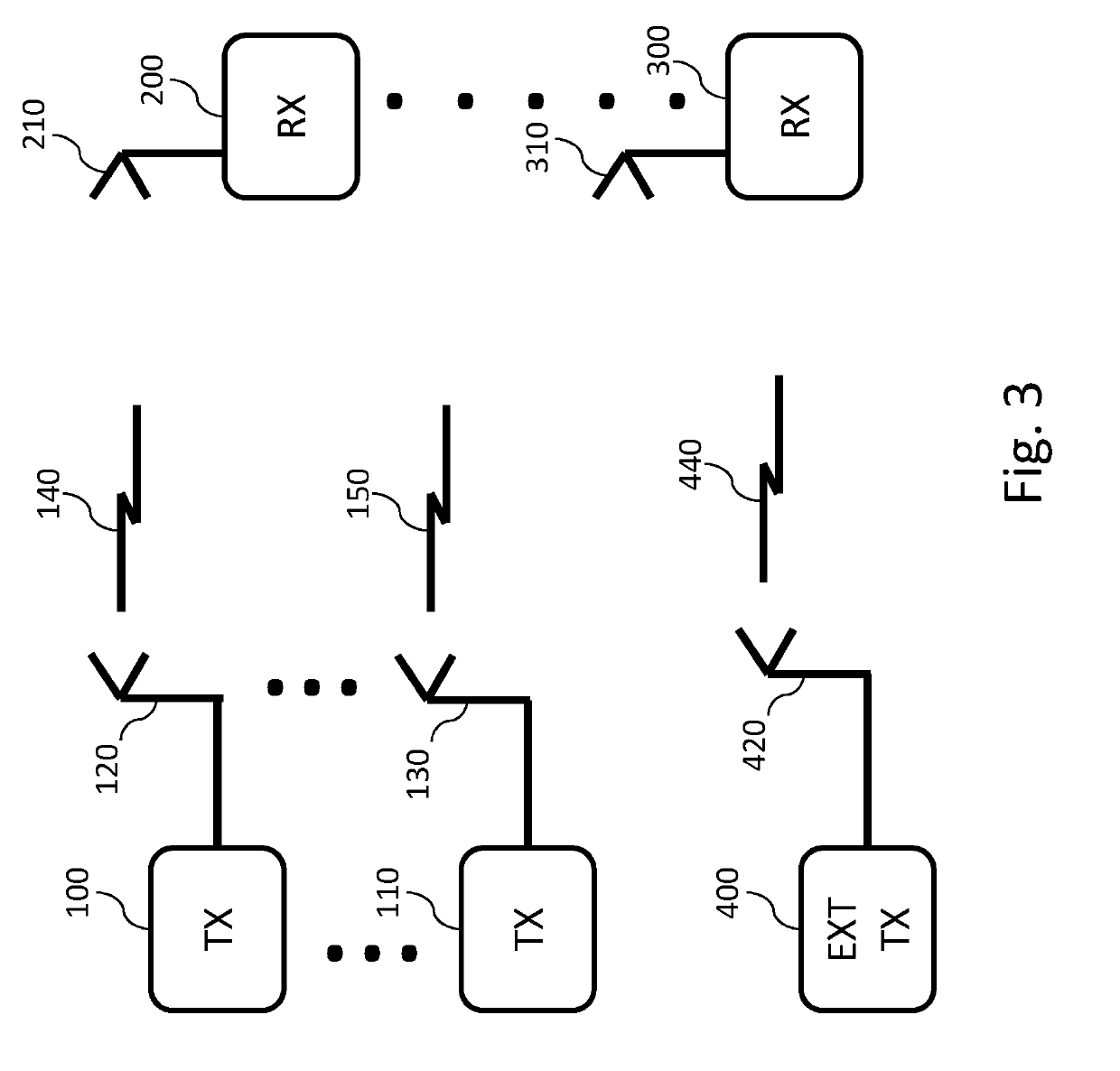Multiple Transmit Antennas with Spacial Diversity to Reduce Multipath Fading
- Summary
- Abstract
- Description
- Claims
- Application Information
AI Technical Summary
Benefits of technology
Problems solved by technology
Method used
Image
Examples
Embodiment Construction
[0025]Referring to FIGS. 1-5, a communication system having multiple transmit antennas with spatial diversity to reduce multipath fading will now be described with several preferred embodiments. It is understood that the embodiments described herein do not limit the scope of the invention, but merely provide examples of the present invention as used in several different instances.
[0026]FIG. 1 shows a communication system comprising at least two transmitters 100&110 coupled to at least two respective antennas 120&130 for transmitting the transmit signals 140&150 with spatial diversity. The transmit signals 140&150 are received by at least one receiver 200&300 through respective receive antennas 210&310.
[0027]The transmit signals 140&150 have spatial diversity in order to reduce the impact of multipath fading without the need for additional receiver complexity. Additional transmitters, respective antennas, and resultant transmit signals with spatial diversity may be added to the commu...
PUM
 Login to View More
Login to View More Abstract
Description
Claims
Application Information
 Login to View More
Login to View More - R&D
- Intellectual Property
- Life Sciences
- Materials
- Tech Scout
- Unparalleled Data Quality
- Higher Quality Content
- 60% Fewer Hallucinations
Browse by: Latest US Patents, China's latest patents, Technical Efficacy Thesaurus, Application Domain, Technology Topic, Popular Technical Reports.
© 2025 PatSnap. All rights reserved.Legal|Privacy policy|Modern Slavery Act Transparency Statement|Sitemap|About US| Contact US: help@patsnap.com



